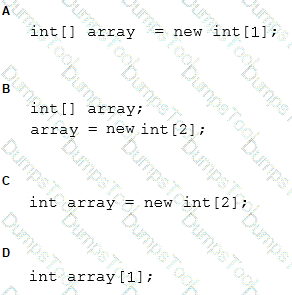Which three statements describe the object-oriented features of the Java language? (Choose three.)
Given the code fragment:
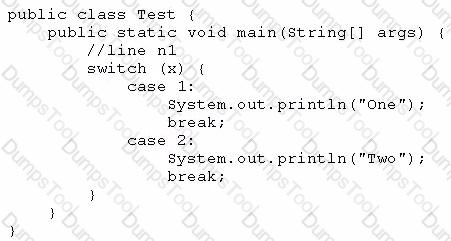
Which three code fragments can be independently inserted at line n1 to enable the code to print One? (Choose three.)
Given the code fragment:
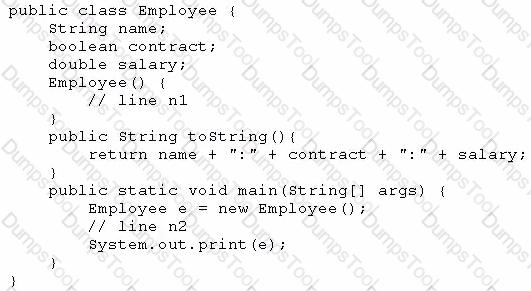
Which two modifications, when made independently, enable the code to print Joe:true: 100.0? (Choose two.)
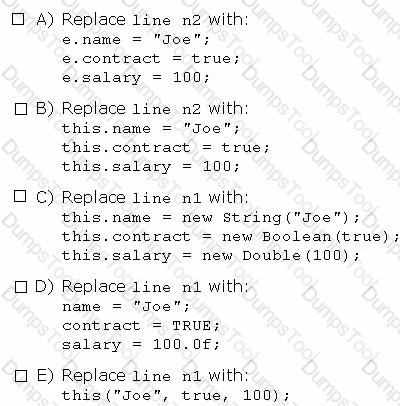
Given:
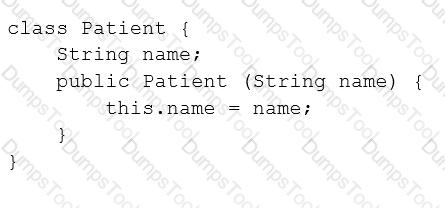
And the code fragment:
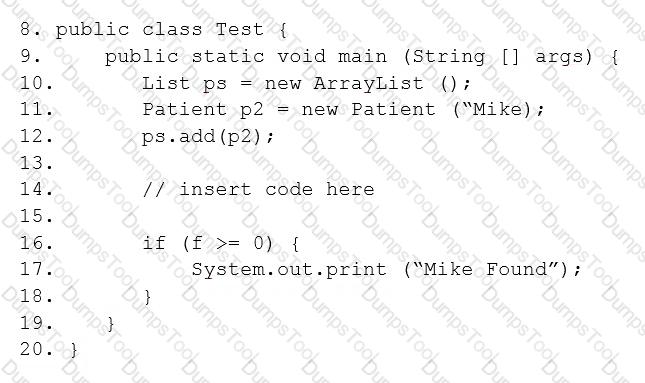
Which code fragment, when inserted at line 14, enables the code to print Mike Found?
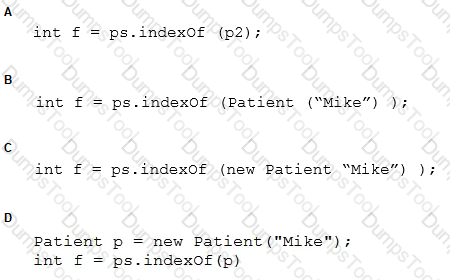
Which three statements are true about the structure of a Java class? (Choose three.)
Given:
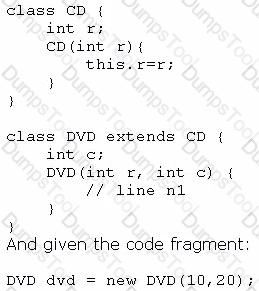
Which code fragment should you use at line n1 to instantiate the dvd object successfully?
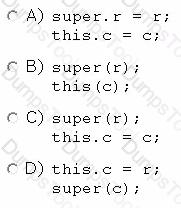
Given these classes:
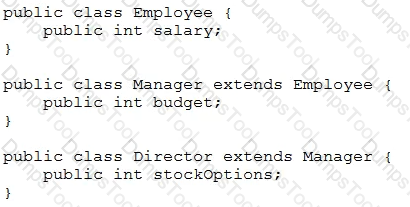
And given this main method:

Which two options compile when placed at line n1 of the main method? (Choose two.)
Given:
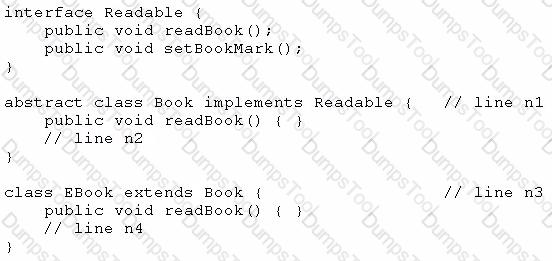
And given the code fragment:
Book book1 = new EBook();
book1.readBook();
Which option enables the code to compile?
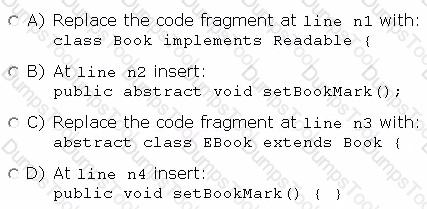
Given the code fragment:

And given the requirements:
1. Process all the elements of the array in the order of entry.
2. Process all the elements of the array in the reverse order of entry.
3. Process alternating elements of the array in the order of entry.
Which two statements are true? (Choose two.)
Given the code fragment:
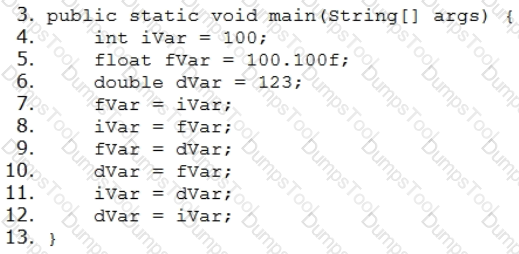
Which three lines fail to compile? (Choose three.)
You are asked to develop a program for a shopping application, and you are given this information:
Which definition of the Toy class adds a valid layer of abstraction to the class hierarchy?
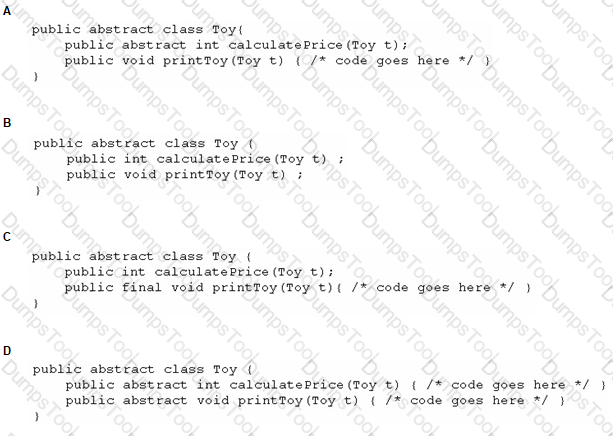
Given these two classes:
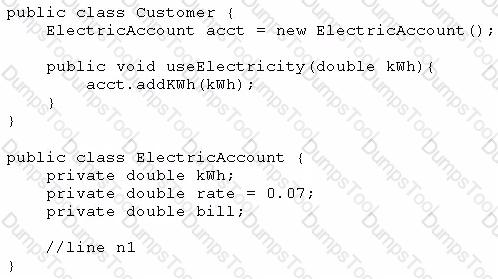
Any amount of electricity used by a customer (represented by an instance of the Customer class) must contribute to the customer's bill (represented by the member variable bill) through the useElectricity method.
An instance of the Customer class should never be able to tamper with or decrease the value of the member variable bill.
How should you write methods in the ElectricAccount class at line n1 so that the member variable bill is always equal to the value of the member variable kwh multiplied by the member variable rate?
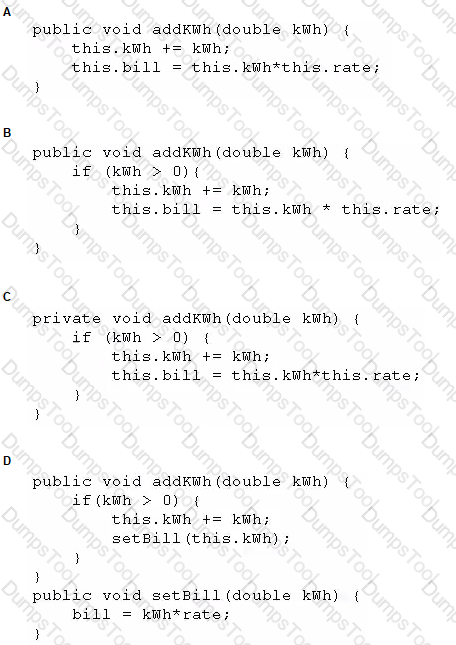
Given the code fragment:

Assume that the system date is June 20, 2014. What is the result?
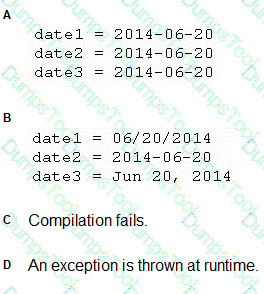
Given the code fragment:

Which code fragment, when inserted at line 3, enables the code to print 10:20?
